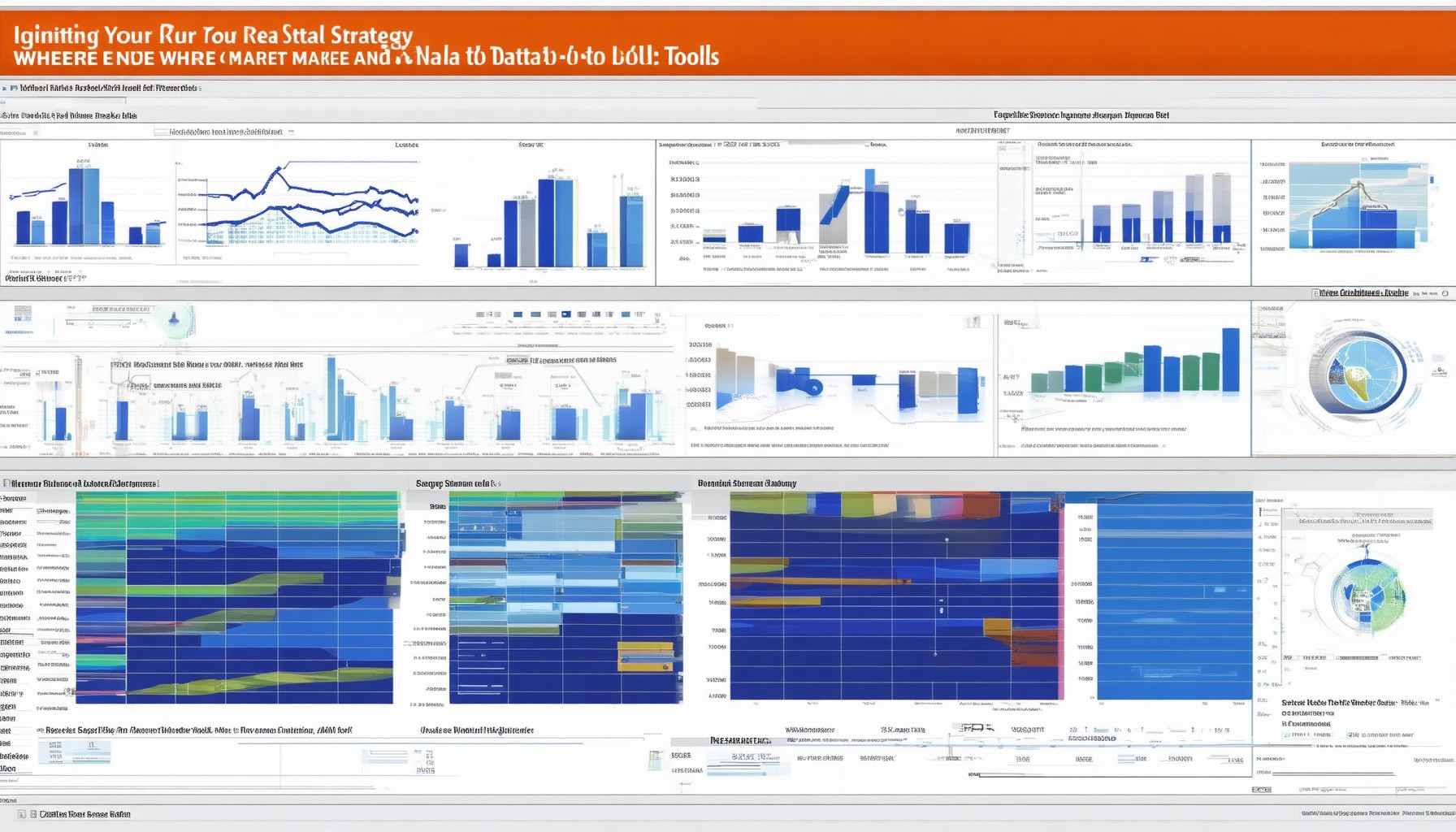Understanding the real estate market is crucial for anyone looking to make informed decisions whether buying, selling, or investing. Accurate and up-to-date market data provides valuable insights into housing trends, neighborhood dynamics, and investment opportunities. This guide explores how to effectively find real estate market data, leveraging tools and resources that cater to both beginners and seasoned professionals. From understanding the 7% rule to accessing free and paid platforms, we’ll walk through strategies to gather reliable information that helps you stay ahead in the competitive real estate landscape. Whether you’re analyzing local housing trends or exploring advanced tools like MLS data, this article equips you with the knowledge needed to navigate the market with confidence.
Key Takeaways
- Leverage Licensed Real Estate Agents: Gain direct access to MLS data, crucial for buying, selling, or investing.
- Utilize Online Platforms: Explore aggregated MLS data on sites like Zillow and Realtor.com for user-friendly access.
- Consider Subscription Services: In some areas, subscribe to public MLS feeds for basic access.
- Evaluate Third-Party Tools: Use legitimate apps for MLS data, ensuring compliance with policies.
- Understand Permissions and Costs: Know the associated fees and requirements for accessing MLS data.
- Prioritize Security and Legality: Always use authorized channels to maintain compliance and protect data privacy.
- Access MLS for Free: Use platforms like Real Estate Locations to explore MLS listings without a subscription.
- Be Mindful of Restrictions: Alternatives may offer limited access compared to full MLS services.
- Collaborate with Professionals: Engage a Realtor for comprehensive support and adherence to regulations.
- Discover Advanced Features: Enhance your experience with tools offering market trends and property insights.

The 7% Rule in Real Estate
The 7% rule is a critical guideline used by real estate investors to determine the maximum amount they can spend on property improvements or operational expenses without jeopardizing their profit margins. Here’s a breakdown of how it works:
- Definition: The 7% rule states that investors should allocate 7% of their cost basis (the price they paid for the property) to cover all permissible expenses.
- Calculation Example: If the cost basis of a property is $150,000, the maximum allowable spending would be calculated as 7% of $150,000, which equals $10,500. Therefore, total allowable expenses (including repairs and improvements) cannot exceed $160,500 without reducing the profit margin below 7%.
- Application: This rule is particularly useful for fixer-upper properties. For instance, if you purchase a property for $120,000, you can allocate up to $8,400 (7%) for renovations. Selling the property for $140,000 would yield a $11,600 profit, representing a 7% return on the original $160,000 cost basis ($120,000 + $8,400 = $128,400 spent, leaving a $11,600 profit).
- Considerations: While the 7% rule provides a framework, its effectiveness can vary based on market conditions, property type, and location. Investors should also consider their risk tolerance, as this rule is a guideline rather than a strict limit.
This rule, often used alongside other strategies like the 2% rule for vacancy rates, helps manage expenses and ensures profitability in real estate investments.
Best Sources for Real Estate Data
When seeking reliable and comprehensive real estate data, several platforms stand out as top choices:
- Zillow – Offers extensive property listings, detailed market reports, and tools for buyers and sellers. Known for its user-friendly interface and vast database.
- Realtor.com – The official site of the National Association of Realtors, providing listings, market analytics, and tools for home searches. Ideal for both agents and consumers.
- CoStar – Specializes in commercial and luxury real estate data, offering detailed market analysis and demographic insights. Primarily targeted toward professionals.
- PropertyMLS.com – A global platform catering to international markets, offering property listings and comparative analysis across different regions.
- Local Real Estate Offices – Many real estate agencies provide updated listings and local market insights. Consulting with a local agent can also offer personalized guidance.
- Real Estate Forums – Platforms like Reddit’s r/RealEstate or BiggerPockets allow users to share experiences and insights, though these may vary in accuracy.
- Government Resources – Official sources such as the U.S. Census Bureau or Canada’s Canada Mortgage and Housing Corporation provide authoritative data on housing trends and demographics.

Where Can I Get Real Estate Data for Free?
There are several reliable sources and platforms where you can access real estate data for free:
- Zillow : Offers extensive real estate listings, property details, and market trends. While some advanced features may require a subscription, basic information is freely available.
- Redfin : Provides property listings, market reports, and tools for buyers and sellers. Their platform includes valuable data at no cost.
- Realtor.com : Known for its comprehensive listings, Realtor.com offers free access to property details, neighborhood guides, and market statistics.
- PropertyShark : Specializes in detailed property data, including valuation estimates and local market trends. Some features are free for public use.
- AptoMLS : Primarily targeted at real estate professionals, AptoMLS offers access to MLS data for consumers. Check their website for public access options.
- Local Government Websites : Many government websites provide free access to property tax records, historical sales data, and building permit information.
- University Research Reports : Universities often publish real estate market studies and demographic data, which can be accessed online for free.
- Social Media Groups and Forums : Join real estate enthusiast groups on platforms like Facebook or Reddit to share and discover free resources and information.
These sources provide a mix of general market data, detailed property information, and tools for analysis. Be sure to explore each platform to find the data that best suits your needs.

How to Access MLS Real Estate Data
MLS (Multiple Listing Service) is a crucial tool for real estate professionals and consumers alike. Here’s a step-by-step guide to accessing MLS data effectively:
- Work with a Licensed Real Estate Agent :
Real estate agents often have direct access to MLS databases. They can provide you with detailed listings, including properties for sale, price ranges, and neighborhood information. This is particularly useful if you’re looking to buy or sell a property. - Use Online Platforms with MLS Integration :
Some real estate websites integrate MLS data into their platforms. Websites like Zillow and Realtor.com aggregate MLS listings, allowing users to search for properties, compare prices, and view photos. While these platforms may not provide full MLS access, they offer a user-friendly way to explore MLS data. - Subscribe to Public MLS Feeds :
In some regions, MLS data is available to the public through subscription services. These feeds typically provide basic information, such as property prices and details, but may not offer the full functionality of a broker’s MLS system. Check with your local real estate association or MLS provider for availability. - Utilize Third-Party Tools and Apps :
Various third-party applications and tools can help you access MLS data. These platforms often scrape MLS information and present it in a more accessible format. Ensure the service you use is legitimate and complies with MLS policies to avoid unauthorized access. - Understand Costs and Permissions :
Accessing MLS data may incur costs, whether through subscription fees or commissions from real estate agents. Make sure to understand the terms of service and any permissions required to access certain levels of MLS information. - Prioritize Security and Legality :
Always use secure and authorized channels to access MLS data. Unauthorized access can lead to legal consequences and violate privacy laws. Stick to reputable sources to ensure the information you obtain is both accurate and lawful.
By exploring these options, you can effectively access MLS data to aid in your real estate journey.
Can You Access MLS Without Being a Realtor?
The Multiple Listing Service (MLS) is a key tool for real estate professionals to access detailed property listings and market data. While traditionally, MLS access is restricted to licensed real estate agents, there are alternative ways for non-realtors to gain access to MLS-like information.
Alternative Ways to Access MLS-Level Information
- Clever Real Estate: Clever Real Estate offers a platform that allows users to access MLS-level data without needing to be a realtor. Their service provides detailed property listings, including pricing, photos, and listing status, tailored for homebuyers and investors.
- Real Estate Locations: This platform aggregates MLS data and provides insights for real estate enthusiasts. It offers tools for tracking properties, market trends, and investment opportunities, though it may not provide full MLS access.
Considerations for Non-Realtors
While these services can be valuable tools, it’s important to note that they may not provide the full scope of MLS features. Additionally, accessing MLS data without proper authorization may violate local real estate board policies, potentially leading to legal consequences.
Recommendation
If you’re serious about accessing detailed MLS information, consider working with a licensed real estate agent who can guide you through the process and ensure compliance with local regulations. They can also provide personalized assistance tailored to your specific needs.
For more information on MLS access and real estate tools, visit our main website .

How to Get MLS for Free
To access MLS (Multiple Listing Service) for free, you can utilize several real estate platforms that aggregate MLS data without requiring a paid subscription. Here’s a step-by-step guide:
- Visit a Real Estate Platform: Many online platforms display MLS listings sourced directly from local MLS databases. One such platform is Real Estate Locations .
- Create an Account: Sign up for free on the platform to gain access to MLS data. Most platforms allow users to register without cost.
- Explore Listings: Once logged in, you can browse properties listed on the MLS through the platform’s interface.
- Set Up Alerts: To stay updated on new listings, enable email or app notifications from the platform.
- Use Advanced Search Tools: Take advantage of filters and search options to narrow down properties based on criteria like price, location, and property type.
These platforms often include additional features like market trend reports, neighborhood guides, and property valuation tools to enhance your experience.
Conclusion: Accessing MLS for free is a valuable tool for real estate enthusiasts. By using platforms like Real Estate Locations, you can explore MLS listings and stay informed about market developments without paying for premium services.




0 Comments